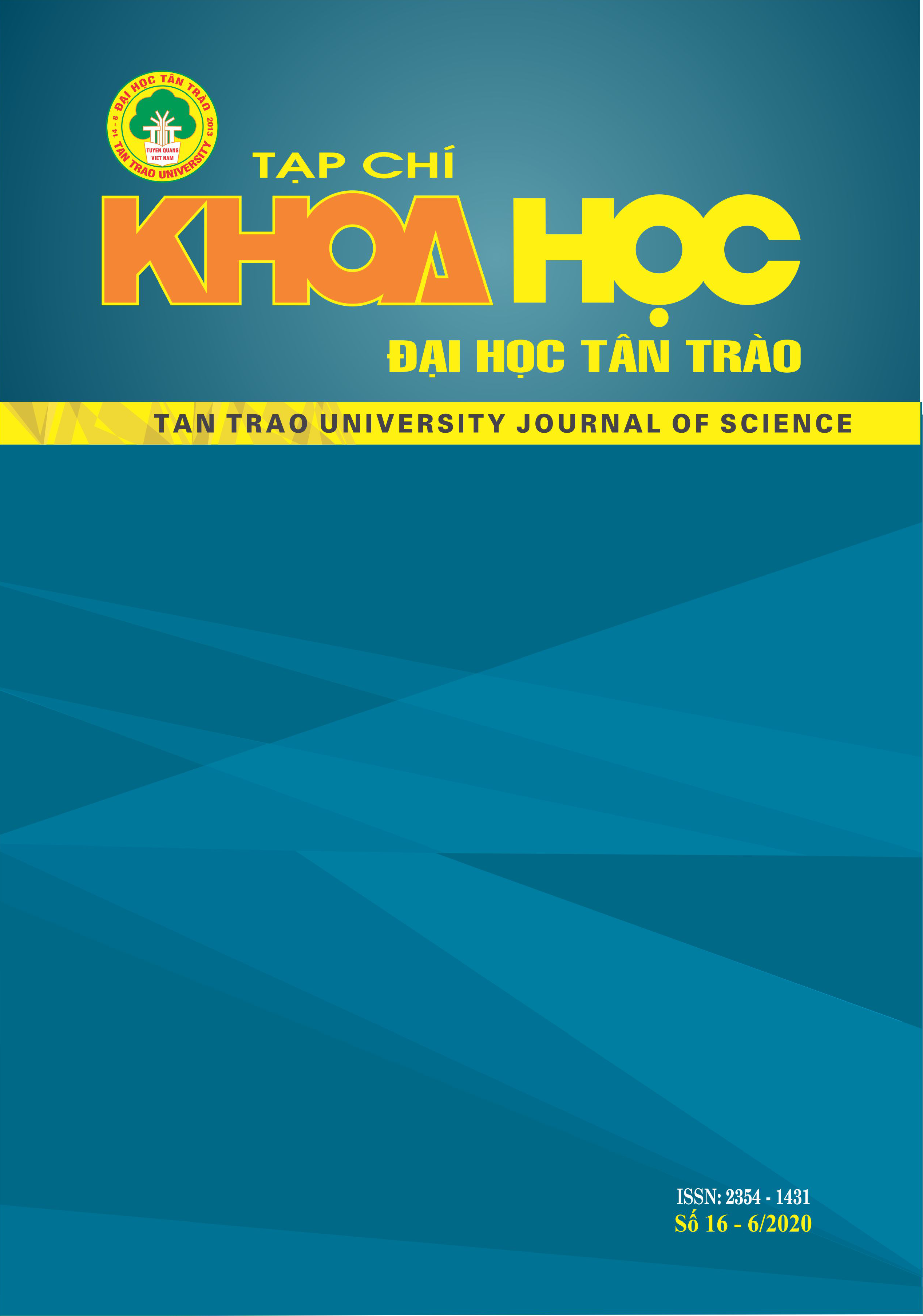The situation of educational management of communication skills for primary students in Tuyen Quang city according to the orientation of the general educational program 2018
DOI:
https://doi.org/10.51453/2354-1431/2020/335Keywords:
survey, assess, management of communication skills, primary studentsAbstract
In order to properly assess the situation of educational management of communication skills for primary students in Tuyen Quang city according to the orientation of the general educational program 2018, the author has surveyed the management situation objectively on the subjects: administrators, teachers ,teachers
in charge of Young Pioneer, students' parents, in order to properly assess the
situation of educational management of communication skills and propose
appropriate solutions for educational management of communication skills to improve the quality of teaching communication skills in Primary schools in Tuyen Quang city according to the orientation of the general educational program 2018.
Downloads
References
1. Bộ Giáo dục và Đào tạo (2013), Tài liệu tham khảo giáo dục kĩ năng sống cho HS tiểu học - Tài liệu hướng dẫn giáo viên.
2. Bộ Giáo dục và Đào tạo (2018), Chương trình giáo dục phổ thông tổng thể, được ban hành theo Thông tư số 32/2018/TT-BGDĐT ngày 26/12/2018.
3. Trần Kiểm (2008), Những vấn đề cơ bản của khoa học Quản lý giáo dục, NXB Đại học Sư phạm.
4. Nguyễn Thị Mỹ Lộc, Đinh Thị Kim Thoa, Bùi Thị Thúy Hằng (2010), Giáo dục giá trị sống và kĩ năng sống cho học sinh tiểu học, Tài liệu dành cho giáo iên tiểu học, NXB Đại học Quốc gia Hà Nội.
5. Nguyễn Văn Lũy, Lê Quang Sơn (2014), Giao tiếp sư phạm, NXB Đại học Sư phạm.
Downloads
Published
How to Cite
Issue
Section
License

This work is licensed under a Creative Commons Attribution-ShareAlike 4.0 International License.
All articles published in SJTTU are licensed under a Creative Commons Attribution-ShareAlike 4.0 International (CC BY-SA) license. This means anyone is free to copy, transform, or redistribute articles for any lawful purpose in any medium, provided they give appropriate attribution to the original author(s) and SJTTU, link to the license, indicate if changes were made, and redistribute any derivative work under the same license.
Copyright on articles is retained by the respective author(s), without restrictions. A non-exclusive license is granted to SJTTU to publish the article and identify itself as its original publisher, along with the commercial right to include the article in a hardcopy issue for sale to libraries and individuals.
Although the conditions of the CC BY-SA license don't apply to authors (as the copyright holder of your article, you have no restrictions on your rights), by submitting to SJTTU, authors recognize the rights of readers, and must grant any third party the right to use their article to the extent provided by the license.


